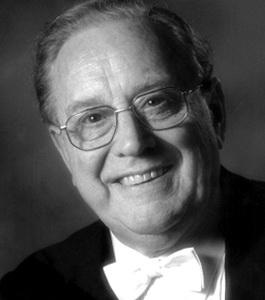Act One.
Vittel, the daughter of the murdered emperor, Titus wants to avenge the death of his father and persuades her lover to Sextus to participate in a conspiracy against him. Having learned,...Read more

Act One.
Vittel, the daughter of the murdered emperor, Titus wants to avenge the death of his father and persuades her lover to Sextus to participate in a conspiracy against him. Having learned, however, that the emperor refused his marriage to Veronica Tsilitsiyskoy and sent it to Jerusalem, Vittel itself intends to become his wife and stops Sextus. Titus also wants to see his wife, sister of Sextus, Servilia, which sends a message to Annius, a friend Sextus, who is himself in love with Servilia long. Titus Servilia decides to tell the truth, but he says that if the Emperor would insist on marriage, she obeyed. Titus, touched by candor Servilia, gives the nod to their marriage with Annius. Meanwhile, Vittel, having learned that the emperor chose his wife Servilia, again imbued with hatred for him and asks Sextus kill Titus. Shortly after leaving Sextus appear Annius and Publius, who report Vittel that the emperor wished to see her his wife. Vittel in turmoil. Sextus led rebels close to the imperial palace, the crowd sets fire to it. Sextus reports that he saw Titus died. Action ends the general chorus, mourned the Emperor. Act II. Soon discover, however, that Titus is alive, but instead it took the death of one of his entourage, dressed in imperial clothes. Rebellion suppressed, and Sextus wants to commit suicide, but Vittel takes him a dagger. Publius Sextus arrest and bring him to the court of the Senate. Senate condemns him to death, but Titus decides to talk to him and find out the truth about the mutiny. Sextus takes all the blame on himself, not wanting to give Vittel, and Titus, in spite of internal impulses, sign a death sentence. On the day of execution Vittel decides to confess all to Titus, who generously forgives her and Sextus. The opera ends with a general chorus, praising the wisdom and mercy of the emperor. Premiere - the Estates Theatre in Prague September 6, 1791. Õ Close Show records by: listenings count | performer's rating | alphabetical
Karl Böhm
(conductor)
,
Julia Varady
(soprano),
Teresa Berganza
(mezzo-soprano),
Peter Schreier
(tenor),
Staatskapelle Dresden,
MDR Rundfunkchor Leipzig


Colin Davis
(conductor)
,
Lucia Popp
(soprano),
Yvonne Minton
(mezzo-soprano),
Janet Baker
(contralto),
Orchestra of the Royal Opera House,
Royal Opera House Covent-Garden Choir

John Elliot Gardiner
(conductor)
,
Julia Varady
(soprano),
Anne-Sofie von Otter
(mezzo-soprano),
Anthony Rolfe-Johnson
(tenor),
English Baroque Soloists,
Monteverdi Choir

Christopher Hogwood
(conductor)
,
Barbara Bonney
(soprano),
Della Jones
(mezzo-soprano),
Cecilia Bartoli
(mezzo-soprano),
Academy of Ancient Music (Cambridge, England)

Rene Jacobs
(conductor)
,
Bernarda Fink
(mezzo-soprano),
Mark Padmore
(tenor),
Freiburger Barockorchester,
RIAS Kammerchor


Charles Mackerras
(conductor)
,
Lisa Milne
(soprano),
Magdalena Kozena
(mezzo-soprano),
Scottish Chamber Orchestra

John Pritchard
(conductor)
,
Yvonne Minton
(mezzo-soprano),
Janet Baker
(contralto),
Robert Lloyd
(bass),
Orchestra of the Royal Opera House,
Royal Opera House Covent-Garden Choir

|
||






